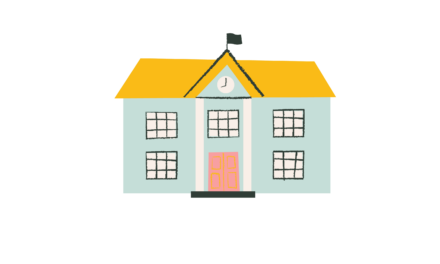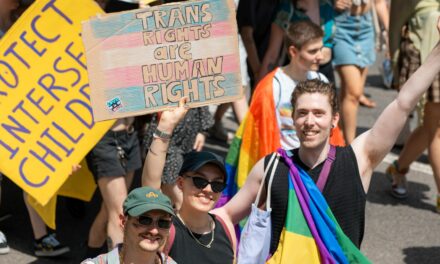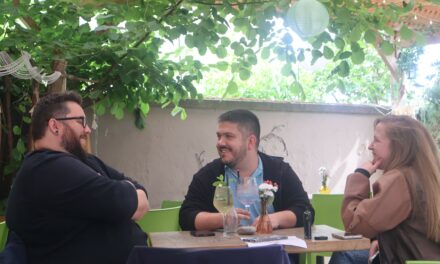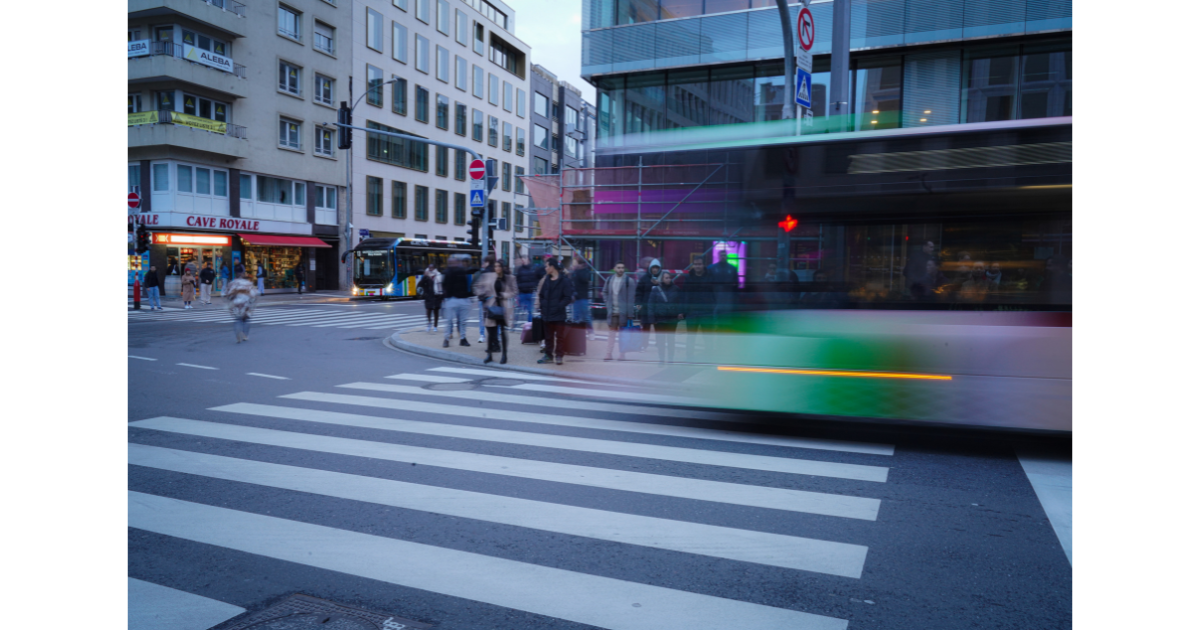
In November, déi aner set out to the busy pre-Christmas streets of our capital to take the pulse on refugees in Luxembourg. While the previous article speaks to the challenges of refugees and especially queer refugees in Luxembourg, the Vox-pop takes a look at public opinion on the matter. As half of the population in Luxembourg (47,2% in 2024) is not Luxembourgish on paper, multiculturalism is often portrayed as part of our national DNA. When asked factual and provocative questions about the topic, new nuances about locals and their relationship with refugees seem to emerge.
Tim, 15 years old
What do you think about how Luxembourg is handling the refugee crisis and helping refugees and asylum seekers fit in?
I think it has been well managed. We don’t have many problems. If you ask me for my opinion, I would say that it has been well taken care of. I have no problem with it.
What do you think refugees bring to Luxembourg? Is it mostly good, bad, or a mix of both?
I think both. Some don’t bring much, but others work here, do good things, and are very well-integrated. But, I think that when they […] don’t work, they are not really beneficial for Luxembourg.
Have you ever met any refugees? What was that like?
Yes, sometimes. They were really kind. Overall, it’s always been a good interaction.
Do you think refugees make it harder for locals to find a house or a job?
I think maybe a little, but not really much.
If there were a war in Luxembourg, and you had to leave, where would you go as a refugee?
I think I would go to Switzerland because it’s a pretty safe country.
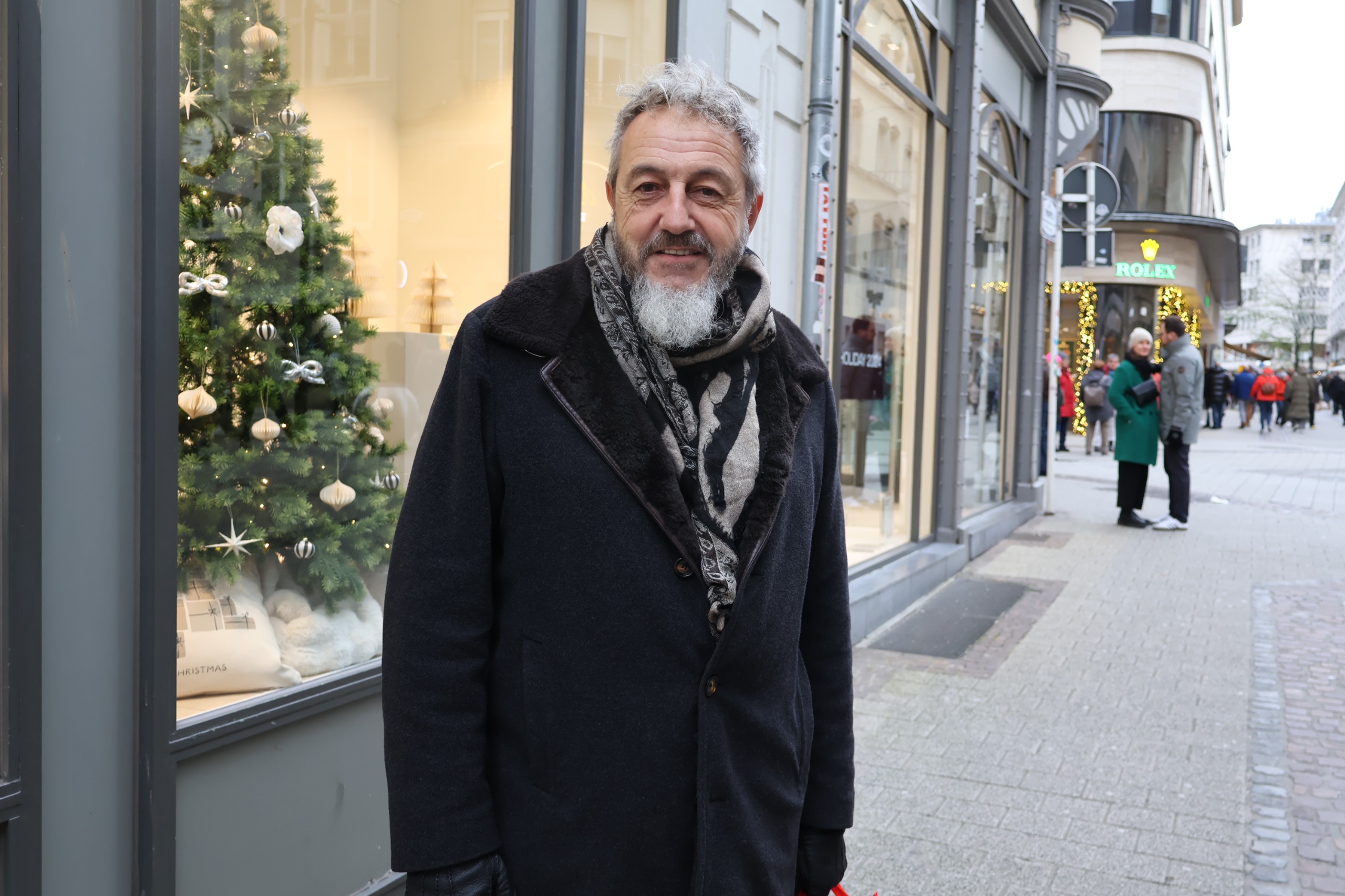
© Ozan Can Çetinkaya
Alex, 62 years old
What do you think about how Luxembourg is handling the refugee crisis and helping refugees and asylum seekers fit in?
Well, I think that, in general, there is a problem with refugees. Actually, it’s more or less like this: People want to come here because they have problems with where they come from, but as they say, it’s the mass that makes the difference. If I have a hotel with five rooms and suddenly 200 people arrive, there is no more space to host everyone. And that could be problematic. There’s no need to be racist against anyone, it has nothing to do with being against a population or a skin color. These are massive issues. You need to have the infrastructure*.
Even if people are willing to welcome them, you need to ensure there are schools, classes to integrate the children, but also support for the parents**. Integration must be active. These people come from different cultural backgrounds, which causes problems that cannot be denied. We have our habits, and they have theirs. If it’s one or two families, it’s fine, it’s interesting. But if it’s more, it’s a problem. Some are active at night, others in the morning. These are cultural differences; everyone is different. A German Shepherd is a German Shepherd, a Dachshund is a Dachshund. But for us to get along, there must be rules, and everyone has to make an effort.
What do you think refugees bring to Luxembourg? Is it mostly good, bad, or a mix of both?
It would be positive if they could integrate into the job market and bring something to the table***. But I find it a shame that, as can be seen in Germany, despite the high numbers of refugees, there is still a shortage of skilled workers. There is a mismatch. If we have to host so many refugees, then we should have the qualified labor we need. Of course, we need foreign labor, but quality has to follow too.
Have you ever met any refugees? What was that like?
I had my own business and employed several of them. It can go well. But I have to say I’m generally disappointed because most of them don’t want to make the effort, neither to learn the languages**** nor to deliver the required work quality. It’s not enough to say you want a job; you have to make an effort to get it.
If there were a war in Luxembourg, and you had to leave, where would you go as a refugee?
I would like to go to a place like Switzerland or the neighboring countries. My parents were refugees. During the war, we were evacuated and had to flee. We know this in my family. But we left to come back. As for [the refugees], they want to stay. So, they must make an effort, just like my parents did.
* Additional Information – Housing crisis: In the winter of 2023, the government-provided accommodations for asylum seekers in Luxembourg were overbooked. Even though the majority of reception facilities for international protection applicants in Luxembourg operate on a mixed-gender basis and saturation point was reached irrespective of the gender of applicants, only single male applicants were refused accommodation. The decision to cease accepting single men into these facilities and to place them on a waiting list was mainly driven by political considerations. The authorities argued that, in general, men are perceived as less vulnerable than families, women, and children. This year, this saturation point has not been reached yet, providing each asylum seeker with shelter.
Asked about challenges for refugees, the Ministry for Home Affairs as well as the Conseil des Refugiés mention the housing crisis in Luxembourg as the key issue for refugees who got their request for International Protection accepted. Due to an intersection of issues, such as low employment rates and financial resources of refugees, it is difficult to find private housing and move out of the overcrowded, shared housing provided by the government.
** Additional Information – Support for parents and students: In 2023, Syrian pupils were the largest group among all newly arrived pupils from any country in Luxembourg (15%), according to the European Migration Network. Depending on the age of the student, the person will either join a class with Luxembourgish children or will have a specific class for refugees and asylum seekers. A social worker helps families/ unaccompanied minors to get started with their education as soon as they arrive in their long-term refugee accommodation.
To access higher education, refugees and asylum seekers can apply for CEDIES funding from the government – these, however, are often not sufficient to cover the basic needs of these students. Important to note is that asylum seekers can only access higher education as “guest students”. Students need to wait to have their protection status accepted to register as a normal student and graduate, which might make them lose some years, depending on the length of the asylum process in Luxembourg.
*** Additional Information – Employment rates: Luxembourg lacks clear statistics on the employment rate of refugees and asylum seekers. Hinting at general tendencies, only 7% of Ukrainian refugees who sought employment found work via the Adem in 2023. The language barrier is noted as one of the key barriers. According to the Organisation de Coopération et de Développement Économiques, the employment rate of refugees and asylum seekers from Syria and Eritreans was around 35% and those from Afghanistan around 28% in Luxembourg in 2018 – these numbers are, however, likely to have changed over the years. Next to the language barrier, refugees and asylum seekers often struggle with getting their prior education translated and recognized.
**** Additional Information – Language learning: While there is a mandatory three-day seminar on life in Luxembourg for asylum seekers who just arrived in the country, language courses are not mandatory. The government offers coupons to refugees and asylum seekers to access free language courses, but (depending on the situation of the individual) these only cover up to two classes per year. While there are also some limited free options to learn and improve language, most courses cost over 100€ per semester.
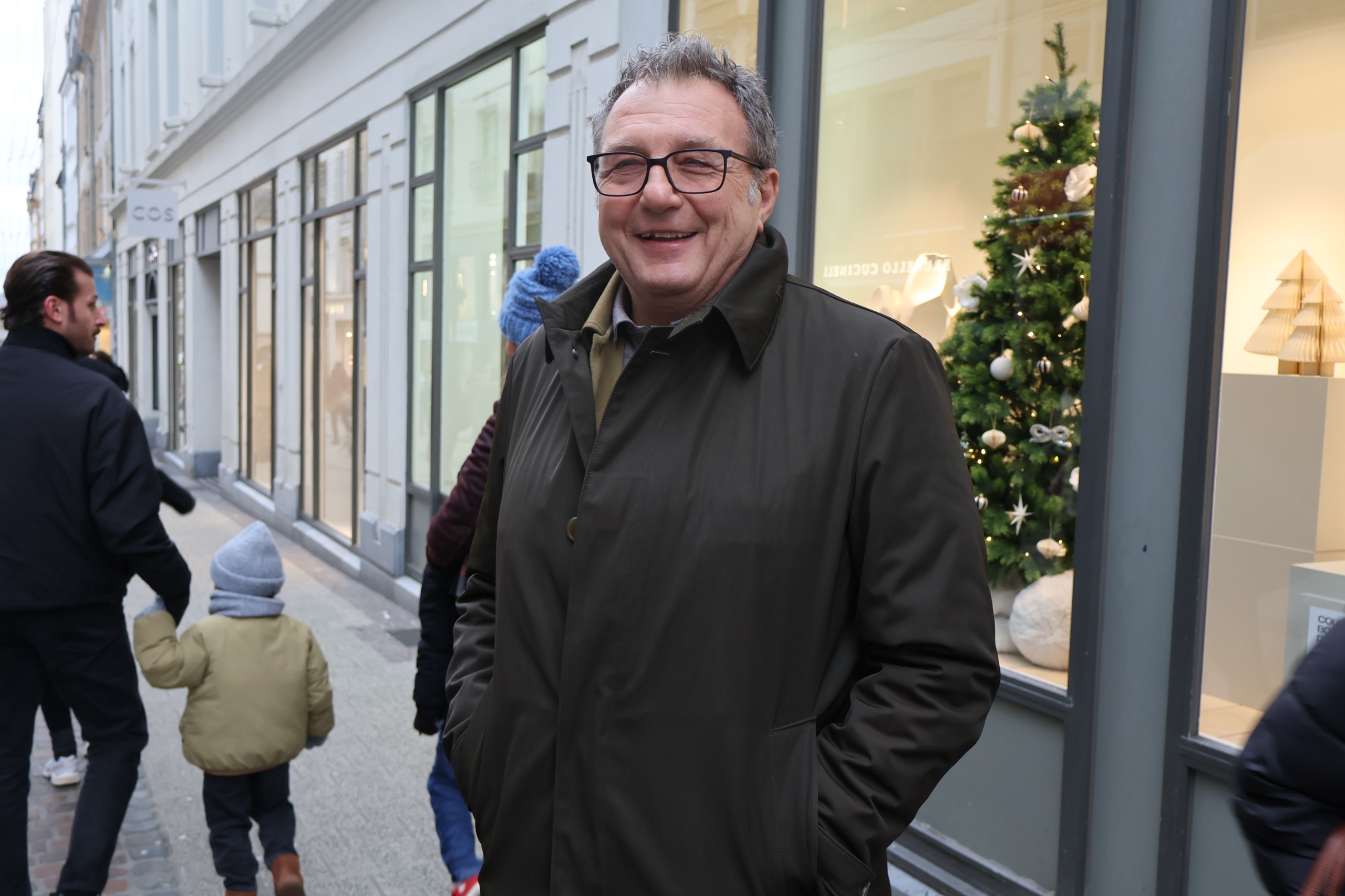
© Ozan Can Çetinkaya
Claudio, 60 years old
What do you think about how Luxembourg is handling the refugee crisis and helping refugees and asylum seekers fit in?
It’s hard to say because we don’t talk about them much. Your question is really complicated. From what I can observe, Luxembourg is not one of the worst countries in this area. But I believe it would be better if we talked more about the positive aspects instead of the negative ones.
What do you think refugees bring to Luxembourg? Is it mostly good, bad, or a mix of both?
Luxembourg has always been a country of immigrants. I am a child of immigrants. I think the complexity of Luxembourg is that we are all “not really” from here. This, in my opinion, is a path that Europe should adopt.
Do you think refugees make it harder for locals to find a house or a job?
Obviously, the more people there are, the more this can have an impact on the housing situation. If construction projects do not keep up with development, and if jobs do not adapt either, this can of course have an effect. It is therefore important that politicians ensure that this remains balanced. I have been living here for 60 years.
If there were a war in Luxembourg, and you had to leave, where would you go as a refugee?
Hard to say, but I would go to Sicily.
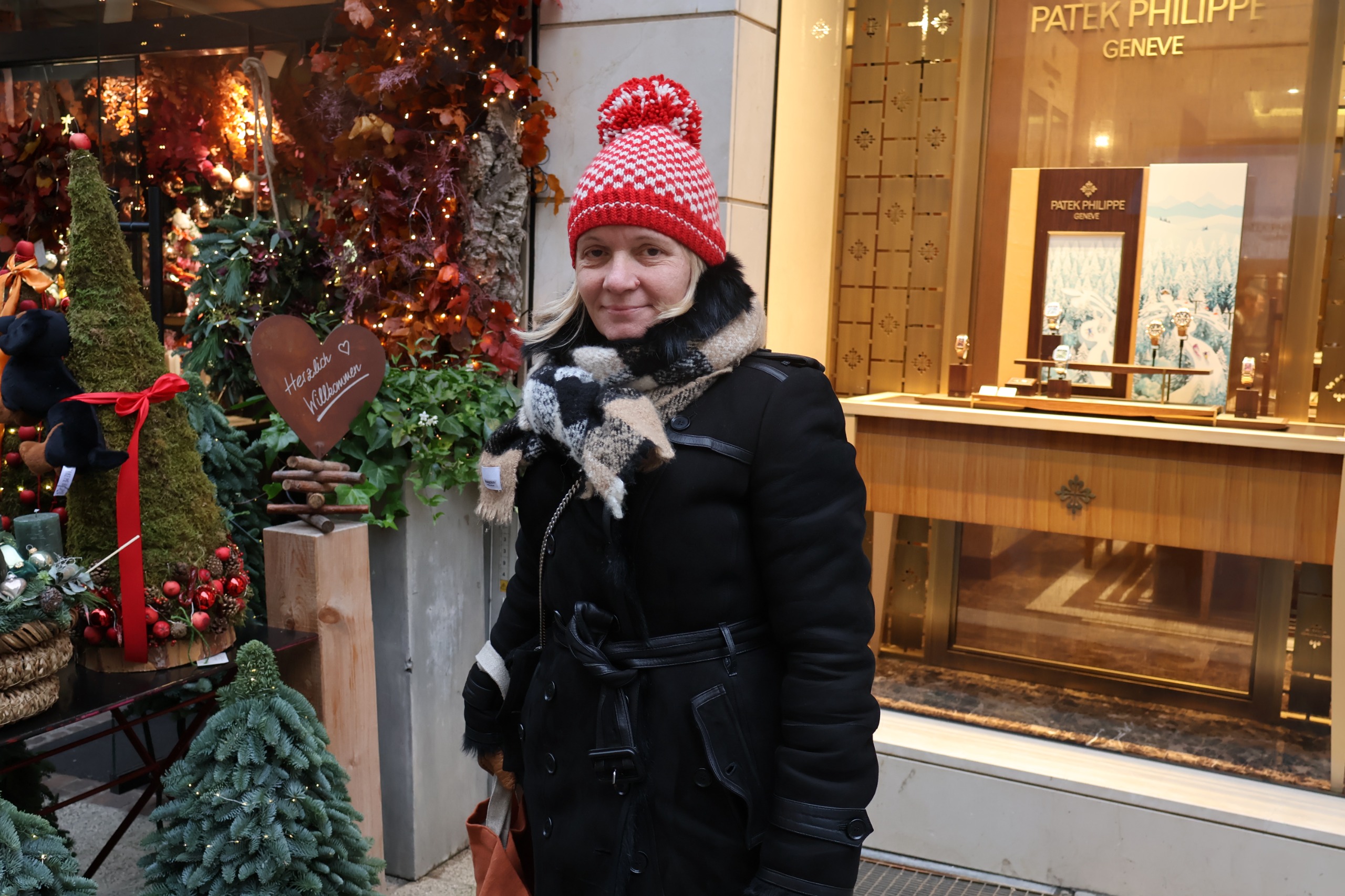
© Ozan Can Çetinkaya
Pascale, 63 years old
What do you think about how Luxembourg is handling the refugee crisis and helping refugees and asylum seekers fit in?
I must admit that I don’t inform myself much about this topic right now. [My opinion on this topic] is difficult to say without being informed. I don’t really watch the news right now.
What do you think refugees bring to Luxembourg? Is it mostly good, bad, or a mix of both?
The fact that refugees exist is already a problem. This shouldn’t even be happening. These are people who have to leave their environment, regardless of the reason. So, for these people, it’s not positive, that’s for sure.
Have you ever met any refugees? What was that like?
Yes, positive experiences as well, but that was a long time ago.
Do you think refugees make it harder for locals to find a house or a job?
I don’t know. In principle, a refugee doesn’t have the right to work right away*****. So, I would say refugees neither change nor worsen the employment situation. As for the housing crisis, I don’t know where the problem is. They are building everywhere, we see large residences being built. The prices are not always affordable, but well.
If there were a war in Luxembourg, and you had to leave, where would you go as a refugee?
I don’t know. Normally, I don’t think you would be able to choose. But in that case, I would choose to go to paradise.
***** Additional Information – Employment rights: Asylum seekers have the right to work in Luxembourg if their application takes longer than six months to process.
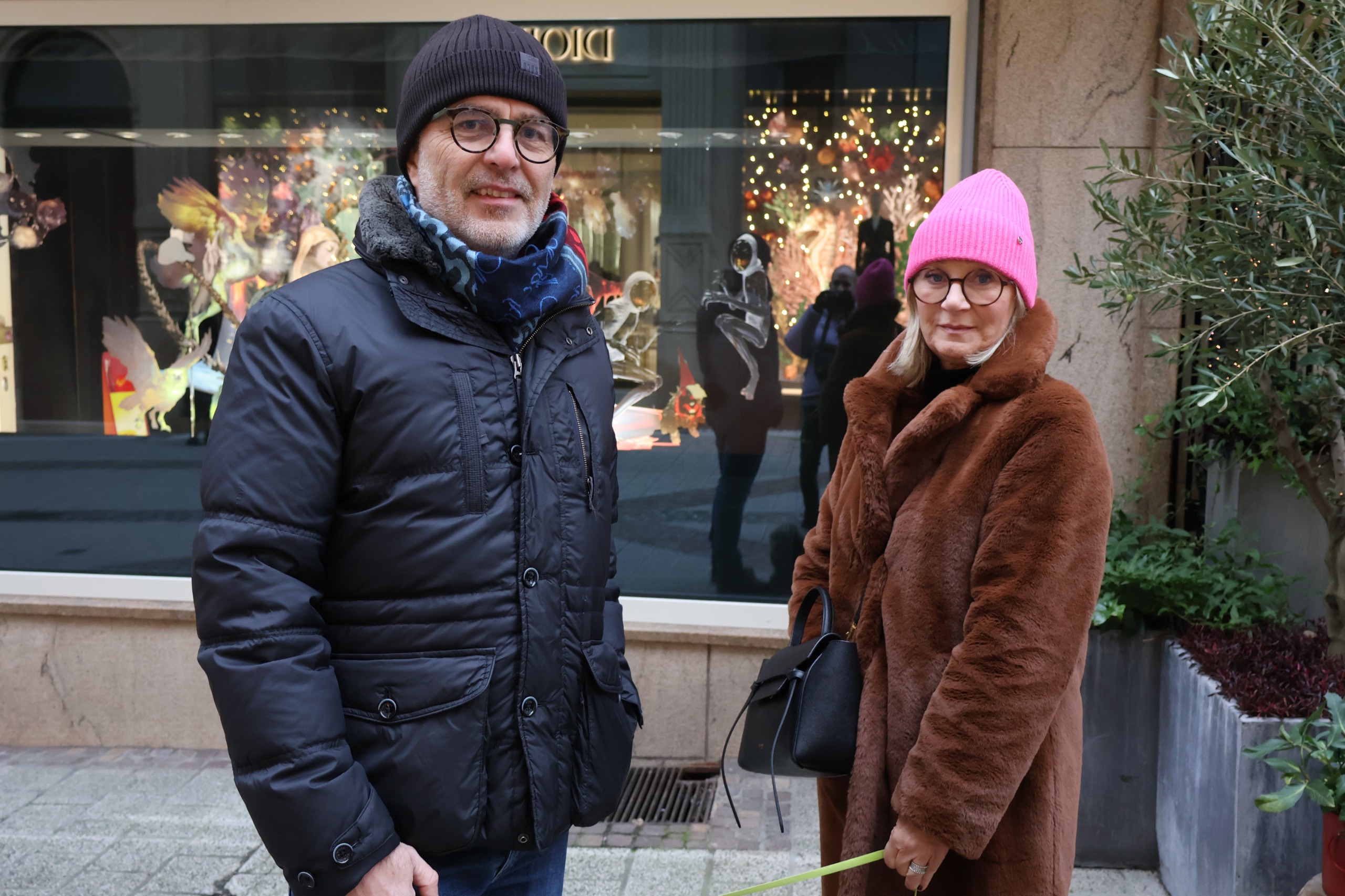
© Ozan Can Çetinkaya
Tom, 55 years old
What do you think about how Luxembourg is handling the refugee crisis and helping refugees and asylum seekers fit in?
Well, I don’t think it’s so bad. But I think that when they come here, it’s not so good when they just end up in a center, and it looks like they have nothing to do all day******.
What do you think refugees bring to Luxembourg? Is it mostly good, bad, or a mix of both?
Both. I think it’s always good to mix cultures. It can be negative for other disadvantaged people who are not political refugees because they are poor and have nothing. They may feel neglected compared to political refugees since it seems like more attention and support are given to them.
Have you ever met any refugees?
No, not directly.
Do you think refugees make it harder for locals to find a house or a job?
No, I don’t think so.
If there were a war in Luxembourg, and you had to leave, where would you go as a refugee?
Maybe not an Arab country, because they don’t respect human rights like here in Western Europe. I would choose Switzerland, maybe.
****** Additional Information – Waiting time: The legal deadline to state a decision regarding the application for International Protection is six months after lodging. The Ministry of Home Affairs explains that this timeframe may be extended depending, e.g., on the workload of the Ministry, “but under no circumstances should it exceed 21 months”. It is important to note that the applicant has the right to inquire with the authorities regarding the reasons for any delays in the decision-making process.
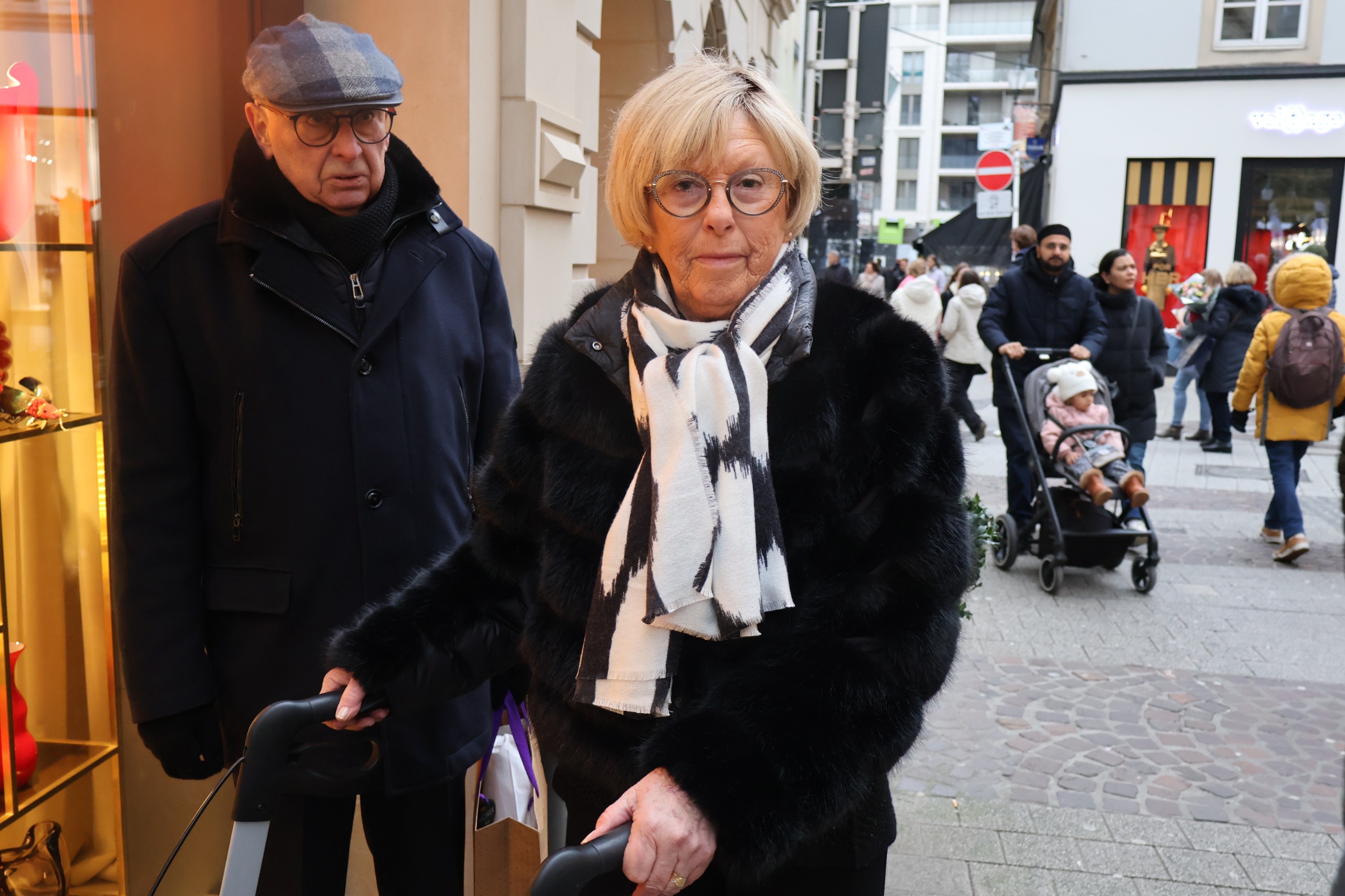
© Ozan Can Çetinkaya
Marie-Jeanne, 79 years old
What do you think about how Luxembourg is handling the refugee crisis and helping refugees and asylum seekers fit in?
In general, I think they are handling it well with the refugees, but I would say that now it is enough. For such a small country, we already have so many. I think that’s enough.
What do you think refugees bring to Luxembourg? Is it mostly good, bad, or a mix of both?
I’d say, if they behave decently and find a job, it’s something positive. Because we need workers.
Have you ever met any refugees?
No.
Do you think refugees make it harder for locals to find a house or a job?
No.
If there were a war in Luxembourg, and you had to leave, where would you go as a refugee?
To Italy, because I love that country and the language.
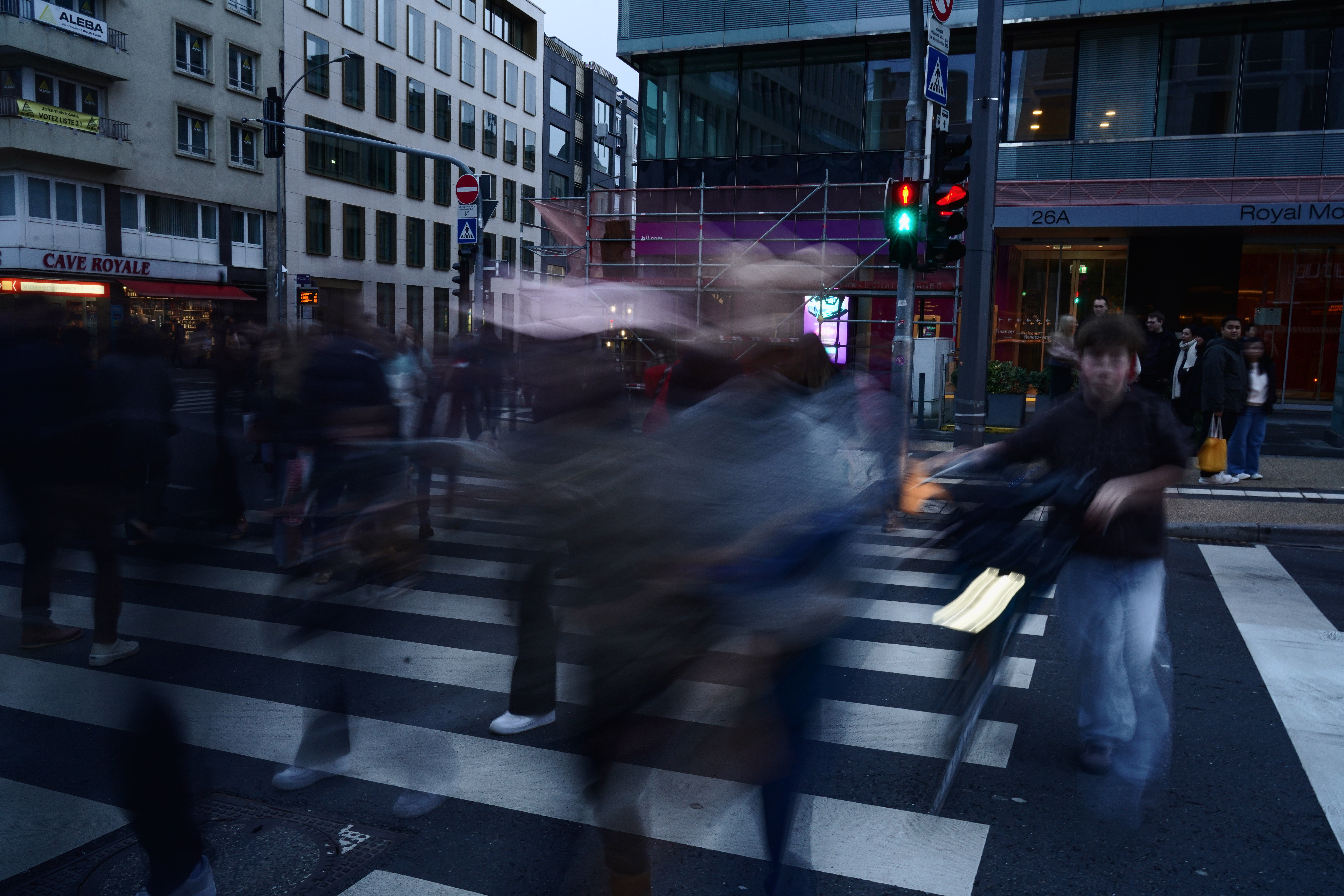
© Ahmed Gul
Caroline, 16 years old
What do you think about how Luxembourg is handling the refugee crisis and helping refugees and asylum seekers fit in?
I think they’re doing it well. They are trying to integrate them well.
What do you think refugees bring to Luxembourg? Is it mostly good, bad, or a mix of both?
I think it’s positive. They aren’t doing anything bad.
Have you ever met any refugees? What was that like?
Yes. In my school, they have a class with refugees, and sometimes we talk with each other. It’s good. We ask them where they come from or what they do, like what they study in their classes. Sometimes we don’t understand each other, but that’s okay.
And do you think your experience with them is positive? Have you learned anything new?
Yes. We learn new things about their cultures.
So you think it’s good that there’s a refugee class?
Yes.
Do you think refugees make it harder for locals to find a house or a job?
I don’t really know.
If there were a war in Luxembourg, and you had to leave, where would you go as a refugee?
I think I would go to France, because it’s the nearest, and we speak French. Or Germany.
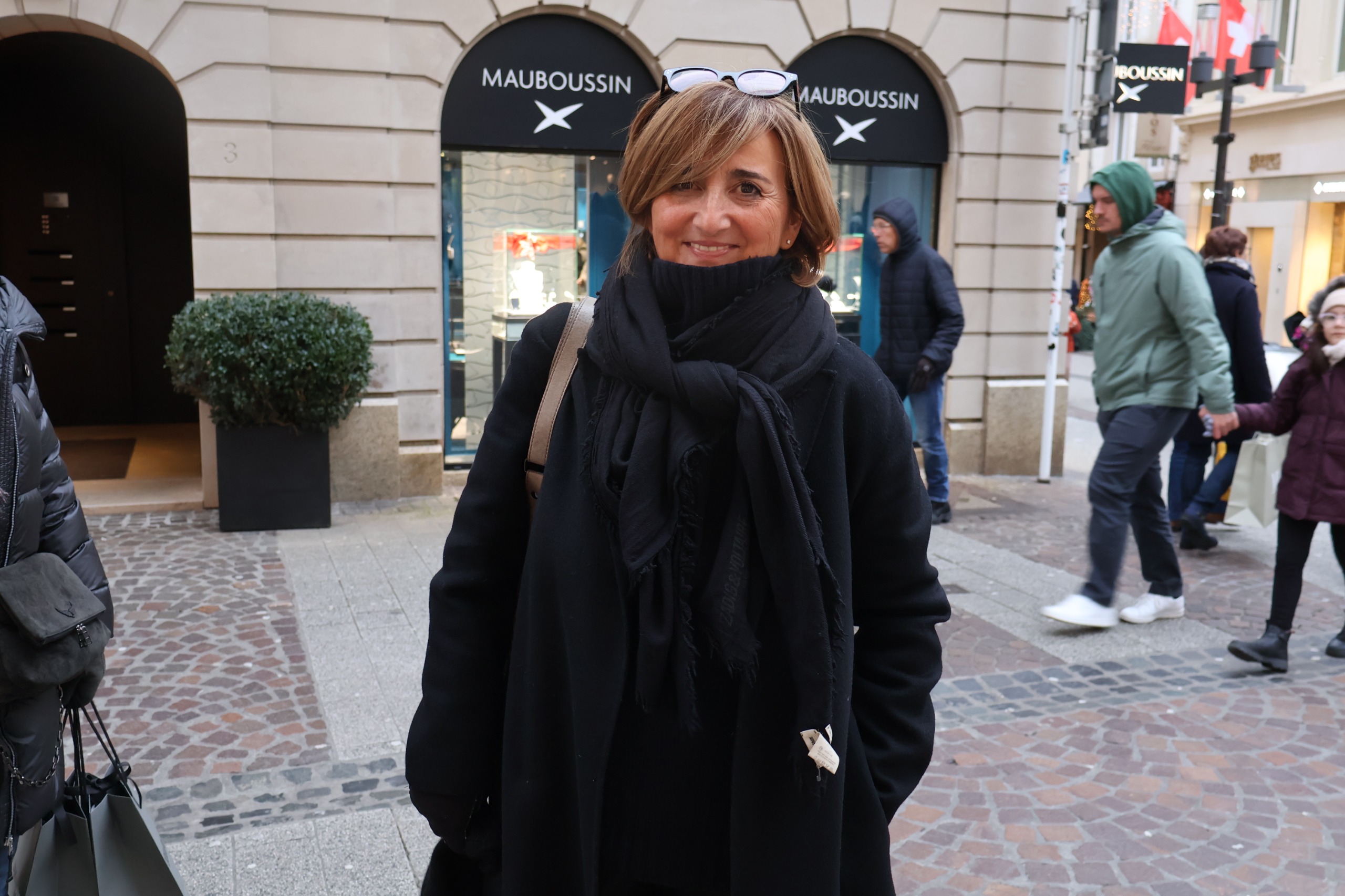
© Ozan Can Çetinkaya
Daniela, 56 years old
What do you think about how Luxembourg is handling the refugee crisis and helping refugees and asylum seekers fit in?
I think they do it well. They are trying, they also have a new center, the SIA (Service for Integration and Reception) for people arriving newly to Luxembourg.
What do you think refugees bring to Luxembourg? Is it mostly good, bad, or a mix of both?
I don’t know. It could be positive if people accept them and if there is really an integration that is done, not just putting them into a box in a refugee house and there they are on their own. In that case, it would not be positive for Luxembourg nor for the refugees.
Have you ever met any refugees? What was that like?
Yes, very good. I’ve had experiences with kids, and also with Ukrainian refugees. I had a really personal contact [with them].
Do you think refugees make it harder for locals to find a house or a job?
No, I would not say that.
If there were a war in Luxembourg, and you had to leave, where would you go as a refugee?
I would definitely go to Italy which is my land and I love Italy. That is where I feel good, but I hope there will not be any war for anybody. I hope people get more sensible to all these refugees because I can see that it is quite hard [for the refugees]. I am the daughter of immigrants, not because of war, but it was still very difficult because Luxembourgers tend to be very closed…
Additional Credit: Kevin Sousa, a contributor from déi aner, transcribed Gabriel Antar’s street interviews.


